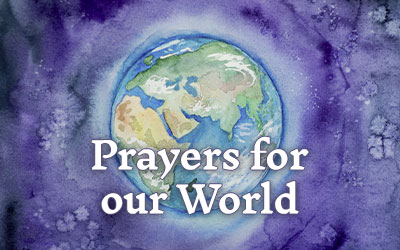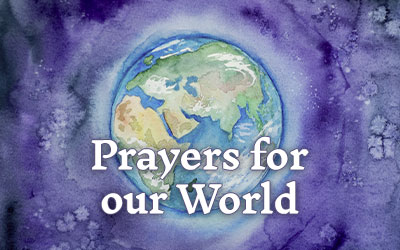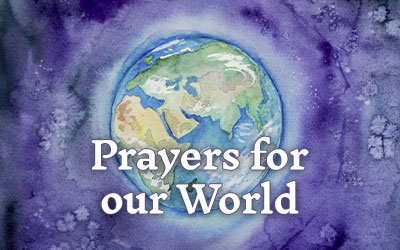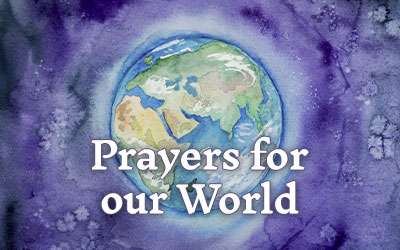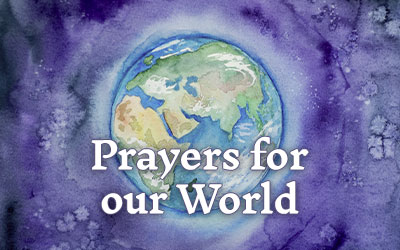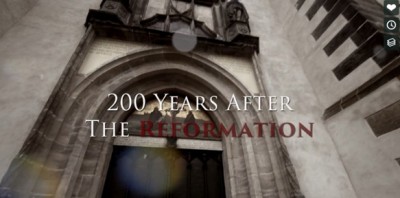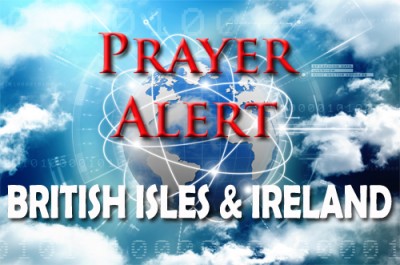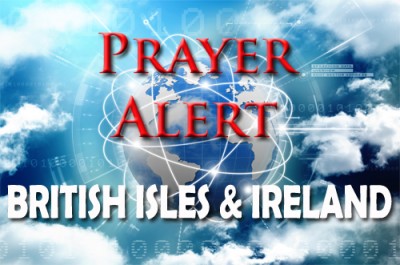The Washington Free Beacon reports China is developing an array of advanced, high technology weapons designed to specifically defeat the U.S. in a future conflict.
“China is pursuing a range of advanced weapons with disruptive military potential,” states the annual report of the U.S.-China Economic and Security Review Commission.
That report outlines six types of advanced arms programs that Beijing has made a priority development in seeking “dominance” in the high-tech weapons area which include: manoeuvrable missile warheads, hypersonic weapons, laser and beam weapons, electromagnetic railguns, counter-space weapons, and artificial intelligence—directed robots.
Note: I address this growing and very serious threat in my 2016 book, Future War. These are no-kidding realities and much of the technology is stolen from the U.S. and yes, I believe there will be a major Asian war involving China in the next couple decades.
Robert Maginnis
National Security Foreign Affairs Update - From Report #69
This email address is being protected from spambots. You need JavaScript enabled to view it.
Pray: for an end to this race to develop advanced weapons of mass destruction.
Pray: for the United Nations as they negotiate global and regional treaties on the non-proliferation of nuclear weapons.
Pray: for peace between China and its neighbours.
More at: http://freebeacon.com/national-security/report-chinas-advanced-weaponry-threatens-u-s-military/
Afghanistan continues to be plagued by suicide attacks, violence and war. Recently more than 100 army and police personnel were killed within a three-day rampage. Government and media offices as well as significant leaders were also targeted. The terrorist groups mainly responsible for this are the Taliban, ISIS and the Haqqani network based in Pakistan. Together these groups are responsible for thousands of deaths each year.
Yet when some of us who have remained within the country recently prayed very specifically about this situation, within days the security forces uncovered a truck loaded with explosives and a house full of weapons thus saving many lives.
We need to maintain this level of specific targeted prayer.
We also need to pray against the external sources which provide all this military hardware.
Finally we also need to pray for our colleagues and national personnel that the Lord will continue to protect and provide for them.
Your prayers powerfully and effectively sustain us all [ James 5:6].
The El Rock Team
Iona Craig in Aden, Sana’a, Taiz and Hodeidah
Abdulaziz al-Husseinya lies skeletal and appears lifeless in a hospital in Yemen’s western port city of Hodeidah. At the age of nine, he weighs less than one and a half stone, and is one of hundreds of thousands of children in the country suffering from acute malnutrition.
Seven million people are on the brink of famine in war-torn Yemen, which was already in the grip of the world’s worst cholera outbreak when coalition forces led by Saudi Arabia tightened its blockade on the country last week, stemming vital aid flows.
Al-Thawra hospital, where Abdulaziz is being treated, is reeling under the pressure of more than two years of conflict between the Saudi-led coalition and Iranian-allied Houthi rebels. Its corridors are packed, with patients now coming from five surrounding governorates to wait elbow-to-elbow for treatment.
Less than 45% of the country’s medical facilities are still operating – most have closed due to fighting or a lack of funds, or have been bombed by coalition airstrikes. As a result, Al-Thawra is treating some 2,500 people a day, compared to 700 before the conflict escalated in March 2015.
More than 200 miles away in the southern governorate of Lahij, territory under the control of the coalition, more emaciated children lie listless, gasping for every breath.
These scenes are replicated in therapeutic feeding centres in the capital, Sana’a, and at the heart of the conflict-ravaged city of Taiz. There in the shadows of a single incandescent bulb, what appears to be a blanket bundled into a dark corner is in fact three-month-old Elias Basem, who has spent 20 days of his short life being treated for severe malnutrition.
Aid agencies are now warning that Yemen’s already catastrophic humanitarian crisis could soon become a “nightmare scenario” if Saudi Arabia does not ease the blockade of the country’s land, sea and air ports – a move that the kingdom insists is necessary after Houthi rebels fired a ballistic missile towards Riyadh’s international airport this month.
United Nations humanitarian flights have been cancelled for the past week and the International Committee of the Red Cross (ICRC), along with Médecins Sans Frontières (MSF), have been prevented from flying vital medical assistance into the country. More than 20 million Yemenis – over 70% of the population – are in need of humanitarian assistance that is being blocked.
Following international pressure, the major ports of Aden and Mukalla were reopened last week for commercial traffic and food supplies, along with land border crossings to neighbouring Oman and Saudi Arabia, but humanitarian aid and aid agency workers remained barred from entering the country on Sunday. UN aid chief Mark Lowcock has said if the restrictions remain, Yemen will face “the largest famine the world has seen for many decades, with millions of victims”.
The conflict in Yemen is between Houthi rebels controlling the capital Sana’a, who are allied with former president Ali Abdullah Saleh, and forces loyal to another president, the ousted Abd-Rabbu Mansour Hadi. Since 2015, Saudi Arabia has led a military intervention to counter the advance of the Iran-allied Houthis, with the ultimate aim of reinstating Hadi.
With regional tensions between Iran and Saudi Arabia escalating, Yemen is trapped in the middle of a proxy war in addition to its own internal power struggle. The UK has also been criticised for selling arms to Saudi Arabia despite the high casualty rate of its US-backed airstrikes in Yemen.
In Aden, where Hadi and his government ostensibly rule, parents and children from surrounding governorates crowd the feeding centre in Al-Sadaqa hospital. Aisha was 21 months old but weighed just 7lbs – half the healthy weight of a baby her age – when she arrived at the hospital, her second admission in three months. Across the corridor, two-year-old Shohud Hussein, weighing 11lbs, stares vacuously into the middle distance. “Hungry children don’t smile. She’s been here a whole month and hasn’t smiled,” said Dr Aida al-Sadeeq.
In Sana’a, Nor Rashid sold her family’s cow to pay for the transport costs to get her four-year-old daughter, who weighs 16lbs, to the city’s feeding centre in Al-Sabaeen hospital. She has other children who are also sick but she cannot afford to pay for the medical care if she brings them in for treatment too. “It’s because of the lack of government wages,” she said. “Usually we go to the person in the village with a wage to ask for help and borrow money if someone needs to go to the hospital. But since the wages stopped we have no support.”
In Al-Thawra, employees grab the sleeve of the hospital’s director, Dr Khaled Suhail, begging him for money as he navigates the teeming therapeutic feeding centre for malnourished children. Government salaries have gone unpaid for more than a year, and the hospital now runs on the goodwill of its doctors, nurses and administrative staff. Suhail clutches the hand of an elderly maintenance man in charge of the hospital’s oxygen tanks as he pleads for cash. “If I had anything to give you, you know I would. But there is nothing,” he says.
Saudi officials have repeatedly claimed that there is no hunger crisis in southern Yemen, where local forces backed by the United Arab Emirates, a coalition partner, largely hold power. According the Famine Early Warning Systems Network, however, Lahij is the most food-insecure governorate in the country. It is ranked at level four, while level five denotes full-blown famine.
In the markets of both Hodeidah and Lahij, food is plentiful. Stalls bulge with fresh fruit and vegetables and traders offer sacks of flour and beans. The only shortage is the customers, who cannot afford to eat. In Hodeidah, the price of a 50kg bag of flour has risen from a pre-war 5,500 Yemeni rial to 7,600 YR. “Fruit and vegetables are a luxury like meat used to be,” said Arafat Zayed, who came to buy three kilos of flour, when he would have bought 50 to feed his family of five children before the war.
How did the conflict in Yemen begin?
The war in Yemen began in March 2015 when Saudi Arabia launched Operation Decisive Storm, but the prospect of conflict had been building for months. Yemenis overthrew longtime strongman Ali Abdullah Saleh in an uprising that began in 2011, but Saleh remained an influential figure operating behind the scenes. A failed transition sponsored by the US and Gulf states saw the rise of Abed Rabbu Mansour Hadi, who became president after Saleh. Hadi was overthrown by the Houthis, Shia rebels from the north that the Saudis accused of receiving Iranian backing. Saudi Arabia sees the war as part of a regional struggle for power with its rival Iran.
In addition to the hunger crisis, Yemen has seen the worst cholera outbreak ever recorded, with more than 900,000 suspected cases and over 2,190 deaths. Although numbers keep rising, in September the rate of infection began to ease, largely due to the response by aid agencies who set up cholera treatment centres in towns and cities around the country.
But the advances could be short-lived if restrictions on aid continue. “If the closure is not stopped in the coming days, we may see that the progress is stopped,” said the World Health Organisation’s spokeswoman in Geneva last week. A Red Cross shipment of chlorine tablets, used for the prevention of cholera, remained stuck for the fifth day on Sunday on the Saudi side of the border with Yemen.
Without the free cholera treatment and essential humanitarian aid, international agencies warn that many more Yemeni children like Abdulaziz will suffer.
“We are weak, our children are weak and we have nothing left to give. We can’t even feed our animals anymore” said Nor Rashid as she cradled her daughter. “Only God can save us now.”
For a video overview of Yemen and its needs visit: http://prayercast.com/yemen.html
For the past few weeks, Saudi Arabia has made it almost impossible to get food to Yemen, one of the poorest countries in the world. Yemen became an independent state in 1990, after gaining its sovereignty from The United Kingdom. The population of Yemen is 24,771,809 (2012). Yemen shares land borders with 2 countries: Saudi Arabia and Oman.
Yemen has been tiptoeing toward famine for the better part of three years. It's a man-made crisis born of immense political instability. (The country has been divided into pieces by warring factions backed by Saudi Arabia and Iran. Terrorist groups such as al-Qaeda control portions of land, too.) And it has been made worse by climate change, rendering a dry and arid country nearly devoid of usable land and clean water.
Eighty percent of the country's population lacks reliable access to food. (That includes around 11 million children; kids under 18 make up around half of the population.) Seven million people, one out of every four Yemenis, are entirely dependent on food assistance. The United Nations has called it the “worst humanitarian crisis in the world.”
Save the Children predicts that 50,000 Yemeni children under 5 will die by year end. That's a toddler dead every 10 minutes.
Yemen is on the brink of a horrible famine. Here’s how things got so bad.
For years, Saudi Arabia has played a dark role in Yemen's suffering. It backs the country's exiled government and has dropped thousands of bombs on military and civilian targets (including schools and hospitals) controlled by the Houthi rebels. (The United States has provided funding, logistical support and arms for this effort.) Nearly 10,000 Yemenis have been killed in the bombings.
In early November, things got worse. After the Houthis launched a missile into Saudi Arabia, the country retaliated with a near-total blockade of Yemen's seaports, airports and highways. This meant that aid groups could not ship in clean water, vital medication and food. Yemen imports at least 80 percent of its food, and the blockade pushed those 7 million people dependent on food assistance to the brink of famine.
Humanitarian groups condemned Saudi Arabia's action as inhumane. “I don't think there's any question the Saudi-led coalition, along with the Houthis and all of those involved, are using food as a weapon of war,” David Beasley, head of the United Nations' World Food Program, told CBS. “It's disgraceful.”
Finally, it seemed, there was a drop of good news. Last week, Saudi Arabia announced that it would partially lift its blockade, reopening airports and seaports controlled by its allies. Today, the Saudi-led coalition said it would allow aid deliveries to the rebel-held port of Hodeidah and Sanaa airport. That decision was set to kick in at noon Thursday. Jan Egeland, head of the Norwegian Refugee Council, wrote on Twitter that it was a “glimmer of hope.”
But aid groups say this new move, on its own, will do little to stem the impending crisis.
That's because aid groups alone simply can't get enough food, water and medicine into Yemen fast enough to feed and help the millions of people who need it. To stem a famine, USAID says, Yemen needs “large-scale imports of essential goods.” That means commercial shipments, not just supplies from the United Nations, which must go through rigorous inspections that slow delivery.
Yemenis need fuel, too, to power the water pumps that clean the country's water. Without it, diseases are spreading rapidly. Right now, the country is experiencing the worst cholera outbreak in history. Nearly 1 million people have been infected.
In a statement, International Rescue Committee Yemen country director Paolo Cernuschi explained that Saudi Arabia's latest effort isn't nearly enough.
“Even though tomorrow's reopening of ports to humanitarian traffic will ease the flow of aid, it will still leave the population of Yemen in a worse situation than they were two weeks ago before the blockade started,” he said. “Humanitarian aid alone cannot meet the needs of Yemenis who are unjustly bearing the brunt of this war. Access by commercial shipments of food and fuel must be resumed immediately, otherwise this action will do little to turn Yemen back from the brink of famine and crisis.”
The international community has also called on the United States to do more to end the Saudi blockade. But so far, the Trump administration has declined to publicly condemn the country's actions.
For a video overview of Yemen and its needs visit: http://prayercast.com/yemen.html
We are focusing a special spotlight this month on the very needy Middle East country of Yemen. We would encourage our prayer partners to join with us as we intercede for the complex situation there.
Yemen, the birthplace of algebra, has a long history of trade in frankincense and myrrh and now makes most of its revenue exporting oil products. Yet it is sadly the poorest Arab nation and is currently facing the world’s largest humanitarian crisis. Decades of war and unrest have torn this nation apart, leaving it crippled by long-standing social, political, and economic instability.
Civilians have borne the brunt of the violence and suffering caused by the unravelling turmoil of civil war since 2012. This has left 80% of the population in need of some form of humanitarian assistance. Yemen’s hunger crisis is one of the worst in the world. Yemeni’s have also endured the devastation of widespread diseases such as cholera. With only 45% of hospitals functional, medications in short supply, and little to no clean drinking water, diseases that should be preventable and treatable have claimed the lives of thousands. The nation’s immense water shortage has only been made worse by the widespread use of the country’s most popular narcotic, qat, which demands approximately 40% of the nation’s supply. Terrorist and militant groups like Al-Qaeda, Islamic State, and the Houthis have taken advantage of the chaos and human suffering to gain territory and momentum.
- Pray for peace and for terrorist and militant groups to be disarmed.
- Pray for sufficient famine relief and medical aid to access all areas of the population in need.
- Pray for the Gospel to go forth in power despite current legal restrictions.
- Pray for freedom from the narcotic 'qat' that holds 80% of Yemeni adult’s captive.
- Pray for the desperate economic situation to ignite a longing for lasting hope and security.
For a video overview of Yemen and its needs visit: http://prayercast.com/yemen.html
In May, the IPC convened an international consultation for prayer and mission leaders to focus on how we can link the two movements more closely and thereby more effectively reach the unreached peoples of our world with the Good News of Jesus Christ. Mission is a supernatural business; therefore, we need supernatural equipment to do it effectively.
The early church understood this and at the clear command of Jesus, they tarried at Jerusalem in constant, united prayer (Acts 1:14). They did this not only until the Holy Spirit was poured out at Pentecost, but all through the book of Acts and into the first centuries of the Church, so that they “turned the world upside down”.
This first tarrying experience in Jerusalem developed into a culture of prayer through which the Spirit facilitated and enabled every mission breakthrough. The glorious outpouring at Pentecost was followed rapidly by 3000 Jewish priests turning to the Lord and the Gentile mission of Peter, Paul and other apostles that took the Gospel to the limits of the then known world.
About 30 times in Acts alone, we observe breakthroughs of one kind or another happening after united prayer. The same pattern has occurred in church and mission history since then though not as often as we would have liked.
Revival and breakthroughs emerge from small groups praying and believing God together in the spirit of Matthew 18:18-20. There Jesus tells us that “whatever”, “anything” will be given when we come into agreement with Him and one another in united intercession.
The Moravians shared the same experience of the outpouring of Holy Spirit in 1727, and out of that erupted a more than 100-year prayer chain that sent out the first Protestant missionaries from their tiny village in SE Germany. Eventually they touched about 5000 locations on earth. Like the early church, they correctly perceived that mission is a supernatural endeavor and can only done effectively with dependence on God the Spirit through a culture of ongoing prayer.
Michael Lienau, an award-winning film maker was with us for the Herrnhut consultation and has now completed the superb video attached below for your use. You may play and download “The Spirit of the Moravians” from the attached link with the password ‘spirit’.
We hope you enjoy it and can share it widely with those in your prayer and/or church and mission networks so that it gets out around the world and can be used of the Lord to impact many.
Especially, we pray that the Lord will raise up churches, prayer groups and individuals who will feel called to adopt and pray for the remaining unreached peoples of our world and the fulfillment of His Great Commission among them.
Spirit of the Moravians 9-min
Spirit of the Moravians 3-min
As you see the video, please pray with us for the following:
1 That we ourselves will be instruments of mission and deliverance for one or more unreached people groups.
2 That God will use us to mobilize churches, prayer groups and individuals to adopt UPGs.
3 That all the 1347 unengaged UPGs on the current list (seewww.finishingthetask.com) will be adopted for prayer and mission efforts by 2025. Pray for adults, youth and children to hear His call and get involved in reaching a UPG.
“Ask of me and I will make the peoples your inheritance and the uttermost parts of the earth your possession.” (Psalm 2:8) Would you prayerfully help make sure that each of the remaining UPGs have someone- preferably a corporate body- church, prayer group or organization- that can adopt and pray for them until they are reached?
John D Robb – Chairman
IPC Connect
Click here to access the video (password 'spirit'): https://vimeo.com/244739881
Felix Ngole’s Expulsion still gleaning attention
24 Nov 2017Earlier this year we prayed for Felix Ngole, but the courts did not give him justice. Felix, a Christian reading for a degree in social work at Sheffield University, leading to Health and Care Professions Council certification, joined in a serious discussion on a US website about same-sex marriage. Sheffield university was informed, summoned him, heard his defence and threw him off the course, saying ‘his writings might damage confidence in the social-work profession’. The university’s decision has now raised online comments by a professor of commercial law, ‘that somewhere, at some time, a hypothetical service user might have seen Mr Ngole’s comments, discovered in some unspecified way that he was a social-work student, and as a result, again in some unspecified way, lost confidence in social workers as a whole’.
Children’s Gender Dysphoria
24 Nov 2017Today's culture is seeing the denial of God-given sex and gender. The NHS options for children and young people with suspected gender dysphoria include family therapy, child psychotherapy, parental support/counselling, group work for young people and their parents and regular reviews to monitor gender identity development. Treatment with a multi-disciplinary team includes mental health professionals as most treatments offered are psychological, rather than medical or surgical. This is because say the NHS, ‘the majority of children with suspected gender dysphoria don't have the condition once they reach puberty’.
